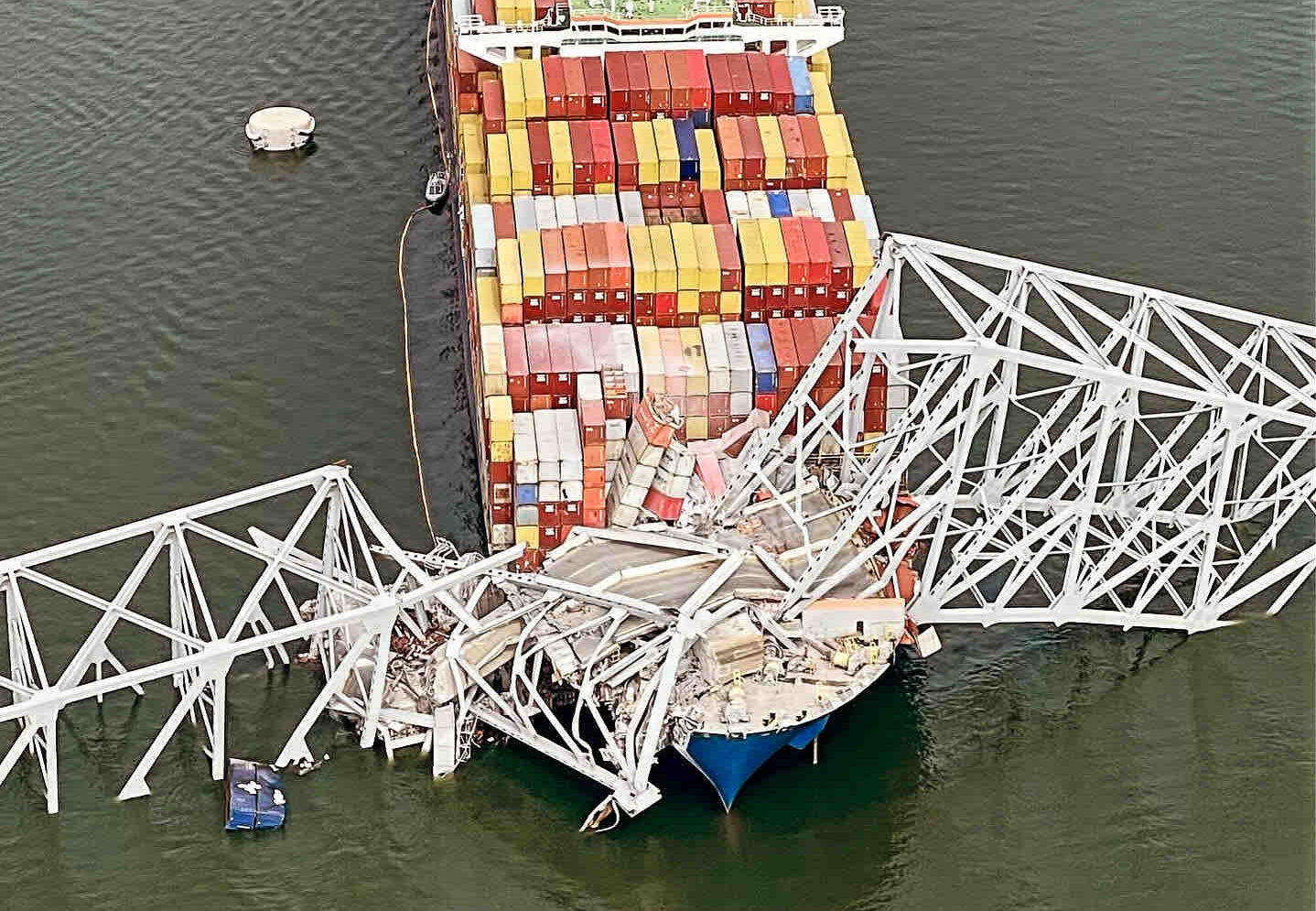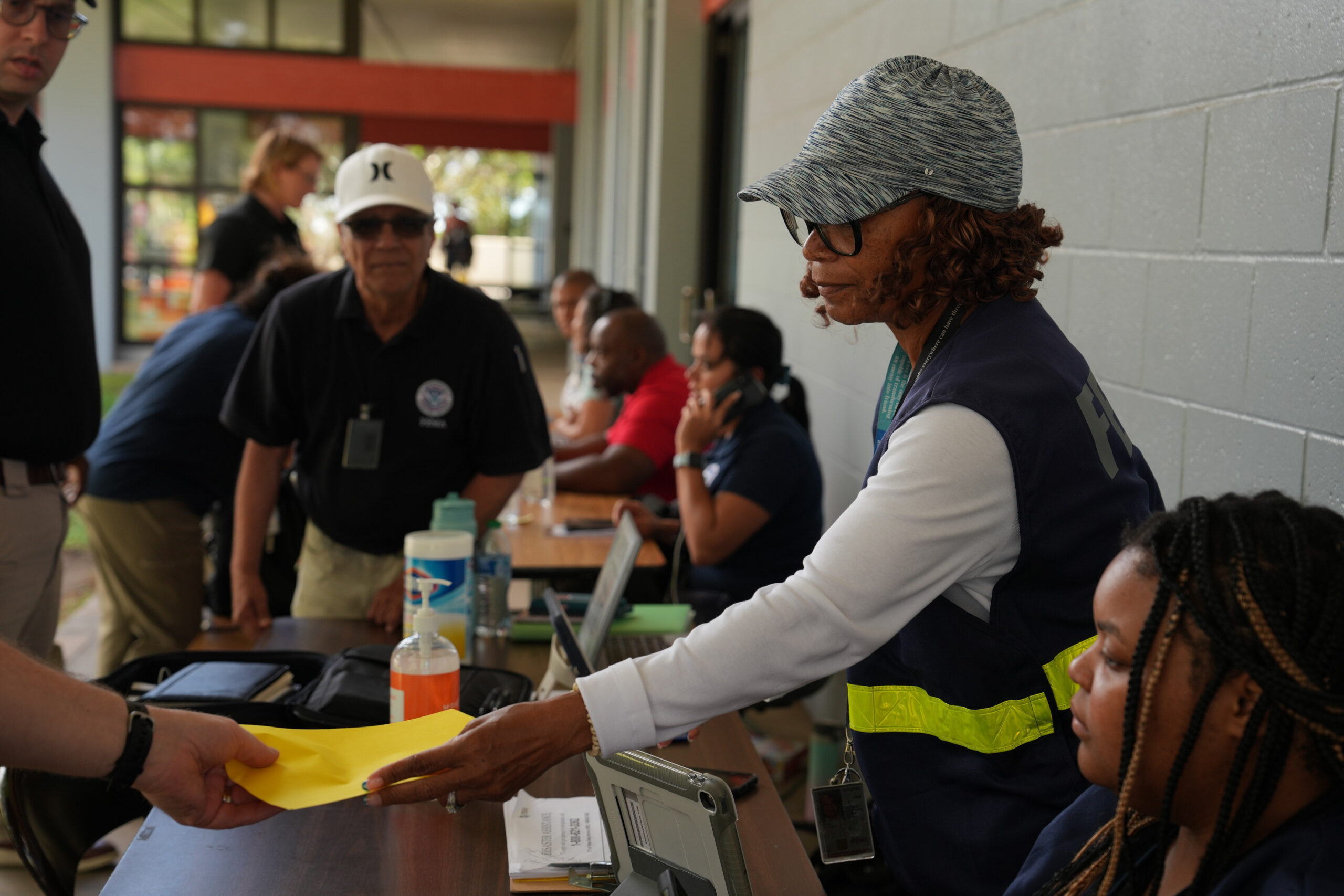What we’re watching: Weekly disaster update, April 1

We know all too well that disaster can strike anytime, anywhere in the world. Some disasters make headlines; others do not. Here at the Center for Disaster Philanthropy (CDP), we monitor the status of disasters worldwide and compile a list of the ones we’re tracking weekly, along with relevant disaster-related media coverage.
Here’s what we’re watching for the week of April 1, 2024.
New or Emerging Disasters
Flooding – Kazakhstan: Severe flooding has been affecting several parts of Kazakhstan since March 26, prompting authorities to declare a state of emergency in four regions. The Emergency Situations Ministry reported over 4,700 evacuations, and more than 500 residential buildings are believed to be flooded in seven regions. The erosion of roads due to the floods has left 26 communities isolated without necessary assistance. As of March 29, over 6,000 people and 12 aircraft have been deployed to aid in rescue missions.
The floods have affected approximately 50,000 people, including 13,260 who were displaced, according to the International Federation of Red Cross and Crescent Societies.
Flooding – Kenya: Between March 24 and 25, heavy rainfall caused floods in Kenya, particularly in Nairobi City, resulting in at least 10 deaths and 52 displaced households. The Governor of Nairobi announced the deployment of 170 members of the Green Army, an environmental cleanup group, to assist with rapid response efforts. Severe weather conditions, such as droughts, floodings and extreme heat, can exacerbate ongoing acute food insecurity and humanitarian crises in Kenya and the region.
For more, see our 2024 Horn of Africa disaster profile.
Migrants – Libya: Many migrants and asylum seekers from sub-Saharan Africa, escaping violence, conflict and climate-induced disasters among other reasons, travel through Libya to reach Europe. On March 22, the International Organization for Migration (IOM) called for all area governments to address the urgent challenges of irregular migration through coordinated response and enhancement of the safety and protection of migrants. This comes after IOM found a mass grave of at least 65 migrants in southwest Libya, believed to be victims of smuggling. In 2023, at least 3,105 deaths and disappearances were recorded by the Missing Migrants Project along the Mediterranean route – known as the deadliest one for migration.
Technological disaster – Maryland: A state of emergency was declared after a massive 984-foot-long cargo ship struck Baltimore’s Francis Scott Key Bridge early Tuesday, March 26 and caused the 1.6 mile (2.6 kilometer) bridge to collapse within seconds. At least eight people fell into the water. Two people were injured, and six others, part of a construction crew, are presumed dead after an 18-hour search and rescue mission. The construction crew members were all immigrants from Latin America.
The devastating collapse of the bridge and subsequent closure of the port of Baltimore is likely to have long-term economic impacts far beyond the city.
Tropical Cyclone – Madagascar: Cyclone Gamane swept across northeast Madagascar unexpectedly, killing 18 people on March 27. The slow-moving storm partly submerged entire villages and set off landslides, displacing more than 20,000 people. The cyclone prompted Madagascar to issue a red alert, which was lifted on Thursday morning after the worst part of the storm, which brought wind gusts of over 130 miles per hour (210 kilometers per hour), passed.
Wildfires – Mexico: A total of 400 wildfires, including 116 active fires, have burned across 15 states in Mexico since March 15, fueled by strong winds. On March 27, four people were reported dead following a wave of wildfires, burning more than 32,000 acres (13,000 hectares). More than 6,000 forest firefighters have been deployed. However, a shortage of firefighters in some areas has caused locals to fight the fire themselves, and they have been met with fire-friendly conditions such as strong winds.
The fires come at a time when approximately 60% of Mexico is experiencing moderate to exceptional drought and 21 million residents of Mexico City are battling a water crisis.
For more, see our 2024 North American Wildfires disaster profile.
Previous/Ongoing Disasters
Disease – Brazil: Brazil’s historic dengue outbreak has no end in sight despite being the first country to organize a national vaccination campaign. The Ministry of Health reported over 2 million cases in 2024 and confirmed 682 dengue-related deaths, with 1,042 still under investigation. Experts say this may be the worst dengue pandemic ever recorded in Brazil, with a disproportionate impact on pregnant women. In addition to dengue outbreaks in other parts of Latin America, Puerto Rico issued a public health emergency on March 27 after seeing a record increase in dengue cases.
Flooding – Papua New Guinea: Flooding in early March covered over 500 miles (804 kilometers) along the Sepik River and affected between 60 to 70 villages in Papua New Guinea. In response to the flooding and king tides along the coast, authorities confirmed that about 10 provinces are receiving necessary aid and assistance.
Amid relief and recovery efforts, the region was also hit by a 6.9 magnitude earthquake, which caused at least five deaths and destroyed 1,000 homes. In addition to responding to the floods, authorities declared a state of emergency and allocated K200,000 ($52,260) for medicine, water, shelter and food assistance in response to the earthquake.
Storm – California: Continued storms, flash flooding and atmospheric rivers left over 20 million people in southern California under flood watch on March 30-31. Santa Barbara and San Diego are some of the areas that faced a Level 2 out of 4 risk for flash flooding.
The storm is moving east where high tornado threats have prompted the National Weather Service to issue tornado alerts for Monday, April 1 evening in Kansas, Missouri, Oklahoma and Texas.
Wildfires – Virginia and West Virginia: The wildfires in and near Shenandoah National Park have seen increases in containment as of March 31. With newly deployed resources and rain, the fires now stand at over 72% contained.
In a separate incident, more than 30 wildfires have burned over 1,000 acres (404 hectares) in southwest Virginia. One casualty has been reported so far.
In addition to the disasters listed above, we actively monitor the following disasters or humanitarian emergencies. For more information, see the relevant disaster profiles, which are updated regularly.
- Afghanistan Humanitarian Crisis
- Gaza-Israeli Humanitarian Crisis
- 2024 Chile Wildfires
- 2024 Japan Earthquake
- 2024 U.S. Tornadoes
- 2023 Libya Floods
- 2023 Morocco Earthquake
- 2023 Turkey-Syria Earthquake
Complex Humanitarian Emergencies – The Sahel Regional Crisis
Many places worldwide are experiencing emergencies caused by conflict, climate change, drought, famine, economic challenges and other conditions that combine to create a complex humanitarian emergency (CHE). CDP maintains complete profiles on several CHEs, and what CDP considers Level 1 CHEs are profiled in this weekly blog post and tracked.
The Sahel region continues to face complex crises driven by violence, political instability, climate change, weak governance and poverty. In 2023, the United Nations Office for the Coordination of Humanitarian Affairs (UNOCHA) found just 12.3 million people, or 52% of the total of 23.6 million people targeted for humanitarian assistance and protection services, were reached.
Amid violence and conflict, Burkina Faso, Chad and Niger are among the few to allow asylum seekers and refugees across the Sahel, mainly from Sudan. As these countries grapple with thousands of new refugees and internally displaced people, experts have called for immediate additional support to avert an even more acute humanitarian crisis.
In addition to violence and conflict, diseases have also been reported in Burkina Faso. As of March 2024, a measles outbreak was reported in Burkina Faso, with over 3,050 suspected cases and 10 confirmed deaths in just the first nine weeks of 2024. In 2023, political instability and coups disrupted access to essential services. Several countries saw outbreaks of dengue, diphtheria and cholera.
In March 2024, Niger, Mali and Burkina Faso, run by military juntas under whom abuses and violence have significantly increased, agreed to form a joint force to fight extremist armed groups.
Prompted by escalating violence, such as the mass execution of 170 people in three Burkina Faso villages, 30 deaths in Mali after unidentified people attacked two villages, and other incidents, humanitarian needs remain persistently high while funding dwindles.
Join us this Thursday, April 4
Webinar: A conversation for funders on reforms for disaster assistance to help survivors recover faster

What We’re Reading
- Philea Research Forum: How can foundations shape future innovation – Alliance: Philea’s CEO says the European Union market is fragmented, stopping ideas from reaching their full potential. The Philea Research Forum, held in Italy in March, called upon a single market to facilitate cross-border philanthropy and collaborations.
- 783 million people face chronic hunger. Yet the world wastes 19% of its food, UN says – AP: A new Food Waste Index Report found that each person wastes about 79 kilograms (174 pounds) of food annually. The report also noted that public-private partnerships and food redistribution help reduce food waste, which helps decrease global greenhouse gas emissions.
- The home insurance market is crumbling. These owners are paying the price – CNN: There were a record 28 weather and climate disasters with losses of over $1 billion in 2023. In places most exposed to climate-related disasters, some home insurers have stopped issuing policies, raised premiums and pulled out of the market entirely. The issue of uninsured homes is only likely to get worse in the coming years.
- Why the world should listen to Yemeni voices – The New Humanitarian: Marking its ninth anniversary, the conflict in Yemen has left people with a crumbling infrastructure, a lack of basic services and very little hope. Hear directly from Yemenis about how the war has affected their lives through a new listening project.
- AccuWeather forecasts near-record storms this Atlantic hurricane season – Reuters: The 2024 Atlantic hurricane season is expected to have a near-record number of storms with a greater risk of direct impacts in parts of Carolinas, Florida and Texas. Around 20-25 named storms are projected for this year, including 8-12 hurricanes.
Catch the total solar eclipse on April 8! Find out where and when to watch, what precautions to take, and when the next one will be.
